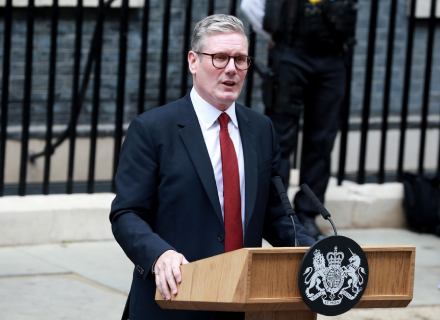As per the industry inputs, British banks are stepping up their lobbying against potential tax increases in the Labour government’s first budget, which is expected to be released in October 2024, due to worries that the Keir Starmer administration may use the sector to bolster public finances.
According to Prime Minister Keir Starmer and Finance Minister Rachel Reeves, bank taxes will not increase. However, Keir Starmer’s recent comment about the burden falling on those with “broader shoulders” has stoked worries, according to a Reuters report.
Higher interest rates have allowed banks to make enormous profits in recent years. Rachel Reeves is scheduled to meet with senior sector representatives, during which bankers anticipate discussing raising bank profits taxes.
According to the reports, Rachel Reeves was having a mutually agreed-upon meeting with Jamie Dimon, the CEO of JP Morgan Chase, recently in London.
“Speculation about tax changes outside of a fiscal event is off limits,” a Treasury spokesperson told Reuters.
The sources stated they expect the Treasury to attempt to increase the current surcharge that banks currently have to pay. This was the simplest way Rachel Reeves could work with the industry to help close a 22 billion pound (USD 28.8 billion) deficit in the public coffers in her budget for October 30.
They said it would be simpler to do this than to reduce the interest that British banks receive on reserves held at the Bank of England, which might skew the results of its monetary policy.
HSBC, Britain’s largest bank, posted a 78% rise in 2023 pretax profit to USD 30.3 billion in February 2024 and competitors including NatWest Group and Barclays have recorded similarly robust returns.
The Starmer government has been blaming the Conservatives for leaving a “22 billion pound black hole” in the public finances. The Prime Minister has also warned about October’s Budget being “painful.”
The 22 billion figure was featured in an audit published by the Treasury at the end of July 2024, just a few weeks after Labour came to power. The document looked at areas of public spending which are set to go over budget this year, including public sector pay rises, overspending on certain projects, such as supporting the asylum system, unforeseen costs like higher-than-expected inflation and military assistance to Ukraine.
“To put the figure into context, in the Spring Budget it was expected that total public spending this year would be 1,226 billion pound. The 22 billion pound is a small proportion of that,” reported BBC.
Gemma Tetlow from the Institute for Government think tank told the media outlet, “Looking back at history and the amount that the government tends to overspend its budgets in previous years, 22 billion pound would be quite a large number.”
To cover some of the shortfall, Chancellor Rachel Reeves has announced the end of winter fuel payments for those not receiving pension credits, apart from cancelling infrastructure projects, such as the road tunnel near Stonehenge, and scrapping previous government measures, such as the planned cap on social care charges from October 2025.

